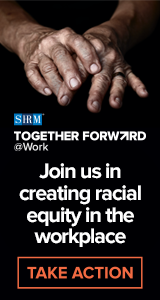Human resources professionals strike a delicate balance between professional and personal each and every day. You are tasked with keeping the business and its employees running at peak efficiency — onboarding new hires, processing paperwork, payroll, and more. But, more importantly, you act as the human liaison between employees, management, and business owners. HR professionals dedicate countless hours to people strategy planning, professional development, talent acquisition, compensation and rewards, and more.
In the hustle and bustle of managing day-to-day office affairs, it can be easy to view employees, and even yourself, as just another cog in the machine. However, successful HR professionals know prioritizing human connection and empathy can make solving business-related issues easier. Managing employee relations and coaching leaders to navigate the human side of their businesses are some of the most critical functions of the HR unit.
These are a few tenets of human-centric HR that HR professionals should prioritize to help build a strong connection between key stakeholders and ensure the business is running efficiently.
Communication
Communicating with your company’s stakeholders can be difficult, especially as offices have shifted to remote work. HR professionals act as the connection between various departments and are tasked with sharing important information.
All members of your company rely on open and transparent communication to operate efficiently and collaborate to solve complex issues. HR’s role is to make sure employees have access to the information they need to be successful. As an HR professional, you can support better communication by encouraging all employees to share openly about their successes and failures and emphasizing that it is a safe environment to share.
Trust
Building trust between employees and your company often works in tandem with open communication. Owners list mistrust between managers and employees as one of the biggest obstacles they face when running a business. As HR professionals, we are in a unique position to help foster trust in our companies.
Trust begins in the hiring process. When interviewing candidates, try asking character-based questions about times they’ve taken on extra work or a time they put the company’s interest ahead of their own. These kinds of questions will help you determine if a candidate will be able to uphold your company’s values and act with integrity. And once the employee is hired, take the time to follow-up with them regularly to see how they are adjusting, and offer assistance if needed. This will give the new employee trust in the company and allow you to build a better connection with them.
On the flip side, encourage your managers to treat employees fairly and make positive assumptions about them. Your employee was hired for their ability to perform the job well, so show them you trust their skills and don’t micromanage. In turn, you’ll find employees more receptive to feedback and willing to go above and beyond for the company.
Empathy
One of the most powerful tools in human resources is emotional intelligence. At the end of the day, employees are human — they have physical, mental, and emotional needs. In the stress of everyday business operations, especially now, it can be easy to forget how work situations can make your employees feel.
When an employee’s performance starts to slip or they seem disengaged, managers can take the important step of having a conversation with them to uncover any underlying reasons for their behavior. As an HR professional, you can work with your managers to train them on how to have these conversations and follow up to ensure progress is being made.
It’s important for managers to understand that empathy relies on understanding how the employee feels and how they want to be treated — not how the manager thinks they should feel. By training your managers to practice empathy, they can then better understand their employees’ needs and help find a proactive solution, demonstrating their commitment to the employee’s well-being while improving performance for your company.
Human resources is, by nature, a human-centric career. HR professionals are in a unique position to introduce open communication, trust, and empathy into the company culture. By doing so, you’ll see better performance from your teams and increased satisfaction among your employees.






